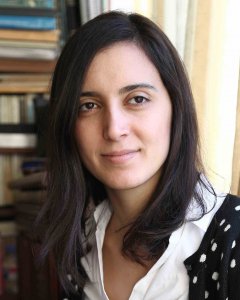Presented By: Department of Psychology
Naturalistic language experiments: opportunities, challenges and progress
Dr. Leila Wehbe, University of California, Berkeley

Due to the complexity of language processing, most neurobiology-of-language studies focus on answering a specific hypothesis by using highly controlled stimuli. I will argue that naturalistic experiments along with predictive modeling provide a promising alternative to the controlled approach. I will outline some details of the naturalistic approach using a specific example in which subjects read a complex natural text while their functional neuroimaging data is acquired using fMRI and MEG. I will describe how to use natural language processing tools in order to build encoding models that predict brain activity as a function of the different semantic, syntactic and discourse features of the stimulus. The performance of these models allows us to formulate and test hypotheses about the functions of different brain regions and build detailed spatiotemporal brain language maps. Importantly, I will comment on the interpretation of the results of naturalisticexperiments, what they can tell us, what they can't tell us, and how to situate them in the broader neurobiology-of-language literature. I will address some of the main arguments against the naturalistic approach by showing several current projects aimed at (i) directly comparing the results of naturalistic and controlled experiments and (ii) modeling the effect of the language task -- such as language production or comprehension -- on the brain's language representations. I will end by describing an overarching framework in which naturalistic experiments and controlled experiments go hand-in-hand to study how information is represented and accessed during language processing.